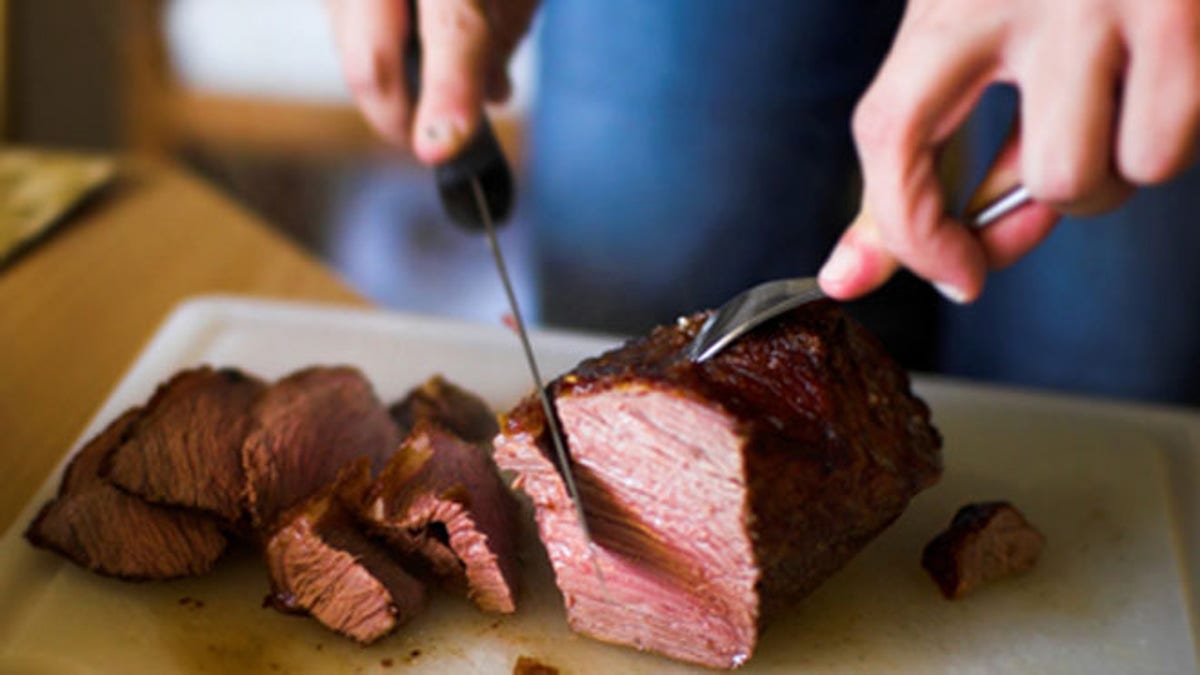
(Gayot)
Organic beef has become increasingly popular over the past decade as health-conscious consumers realize it may be better for the body and better for the environment. But organic beef is usually much more expensive than conventional beef. With such high costs, is it really worth the price?
No-Hormones-Added, Antibiotic-Free, Natural-Organic Meat
In order to be a well-informed consumer, one should know what "organic" means in the first place. For beef in particular, "organic" means that the cattle were fed 100 per cent organic feed (either grasses or grains that were grown without the use of chemicals), were not given antibiotics or growth hormones, and were allowed significant access to the outdoors throughout their lives. Additionally, it also means that the cattle were never fed animal parts, since ruminants are herbivores by nature. Only beef that meets these standards can carry the USDA’s organic seal.
So why do some products carry seals that say “natural” or “antibiotic-free?" While such claims may be truthful, they are not regulated by the USDA and are not synonymous with “organic.” Even meat with a “natural” label is technically just any beef that has been minimally processed.
Even with the “organic” designation, there is no solid evidence that organic beef is nutritionally healthier than conventional beef. Some, however, claim that beef from grass-fed cattle is higher in Omega-3 fatty acids and lower in saturated fats. Omega-3 fatty acids are considered to be heart-healthy and protect against physical and mental degenerative diseases.
It's Not Just About the Beef
While some people buy organic beef solely for personal health reasons, others do so because the ways in which cattle are raised for food also impact the environment. Organic farming encourages raising animals with a proper land-to-cattle ratio so that the manure can actually be used by plants as fertilizer and doesn’t run off as pollution. Additionally, there is no use of pesticides or artificial fertilizers on the land where the cattle roam, so those chemicals cannot harm the environment either. According to the Organic Trade Association, the benefits of raising cattle organically include healthier water supplies and more humane treatment of animals.
According to the Husbandry Institute, even with the onset of Mad Cow Disease and a 1997 FDA ban on cattle feed containing animal by-products, there are still conventional beef producers who use animal by-products (mainly from chicken and fish) as a protein source to promote the growth of their cattle. Likewise, conventional beef producers sometimes use other controversial methods, such as using antibiotics and hormones for growth, and housing cattle in cramped, filthy warehouses with no access to the outdoors.
So Pay the Price?
Although the price of organic beef is higher than that of conventional beef, the bottom line is that buying organic helps out the smaller farmer and environment and also encourages the fair treatment of animals. One way to look at it is to not only consider the immediate effects of supporting such farms but the long term effects on our health and environment. So, next time you stand in line at the meat counter to get your New York steak, don’t only think of the taste. Think of the effects of your choices, too.
MORE ON GAYOT.com
Understanding Beef Cuts
Top 5 Tips for a Perfect Steak
Top 10 Steakhouses in the U.S.
Best Steakhouses Near You
Top 10 Steak Wines
